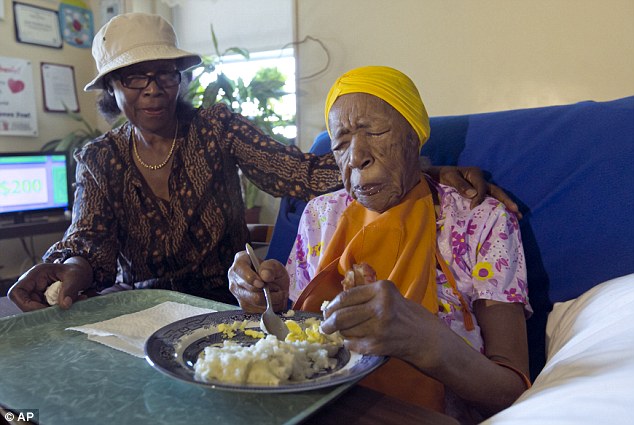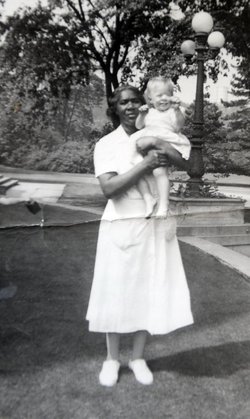“These are not normal times. These are extraordinary times. And [they] call for extraordinary measures.” ~Dan Rather, 1/22/2017
Jim Ross-Nazzal, PhD and Students
PROLOGUE
One of the big questions is “Is there continuity among some themes throughout US history or do those same themes in US history change over time?”
For example, has US foreign policy goals remained the same the last 200 years or have those goals changed?
Has free trade (in different names) been a central tenet of US economic policy since Washington?
Has the relationship between the governed and the government changed that dramatically between 1776 and today?
Has religion always played a role in American politics?
Is there a 230 year long history of anti-Catholicism, antisemitism, anti-Muslim, or have Americans relatively accepted non Protestants?
Is the anti-immigrant drum-beating a recent phenomenon or an integral part of US history?
Has there always been a “monster” in US history? Someone or something we can blame our problems on? Or is the “monster” a recent phenomenon such as people of Japanese descent during World War II or Communists during the 1950s and 1960s?
One of the strikes against Susan B. Anthony was that she was unmarried. Those Hallmark movies (especially the Christmas ones) would have you believe that women are not whole unless they have a man in their life. Is the image of a single woman being abnormal unchanged over time?
Through the following chapters, I am going to look at US history through many themes from the colonial period to the present such as:
Immigration
Religion
Race/Ethnicity
Patriotism
Press/Media
Women/Gender
Foreign Policy
But there are other ways to look at similarities and differences. For example: How about commonalities among wartime presidents regardless of the era? Maybe a thematic approach would work. William McKinley’s Spanish-American War ended quickly, but then a protracted guerrilla conflict erupted in the Philippines. A war the US had never fought and a war that had some similarities with the Vietnam conflict. Maybe George H. W. Bush’s quick success in Iraq in 1990-1991 but then the protracted occupation and insurgency that continues at least through 2021?
Harry Truman ended WWII within four months after taking office. A rather incredible 120 days. Then, he desegregated the military. He almost lost his reelection bid because of doing so. And, within 2 months of ending WWII, Truman began US involvement in our 10,000 Day War -Vietnam. The first American died in Vietnam in December of 1945. The last American died in Vietnam in April of 1975. Vietnam was our longest war.
Ronald Reagan was at the helm when the Cold War came to an end. Pope John Paul II played a role in ending the Cold War. David Hasselhoff claimed to have played a role with the popularity in West Germany of his #1 hit “Looking for Freedom.” Yes, the Baywatch star sang. Here you go. But it was probably the US House of Representatives which played the biggest role by simply outspending the Russians. The Cold War ended in large measure because Russia went bankrupt.
What about looking at US history through the lens of the Great Man Theory? Is American history driven more by the deeds of elite (usually white) men than by the Average Joe and Maria?
Thomas Edison (movies)
J. Robert Oppenheimer (Manhattan Project, atomic bomb)
Steve Jobs (personal computer).
The invention of movies helped create a particular milestone among youth -the first date and all its implications. Hollywood has helped shape or even possibly became the driving force of popular culture. We feel the effects of the Manhattan Project, which was the invention of the atomic bomb, today. The Cold War might not have happened if not for the Bomb. And without Oppenheimer’s contribution to the world, there might not have been the Soviet invasion of Afghanistan, or the Iranian Revolution, the Oil Embargo, or the personal computer. Without Steve Jobs and the personal computer, how would I have completed this “contribution” to society? But could Jobs have come up with the Apple I without the IBM 360 that the University of Houston’s Dr. John Lienhard used at my alma mater, Washington State University, in 1966?

Or, is history more about the stories of individual people and their connection to the larger picture in American history? Are those stories more interesting, more meaningful, more insightful to help us understand American history because there is something recognizable about their stories? Something personal? Do they remind you of someone, a relative, a friend or, are they just the embodiment of anyone? The possibility of being you? Do the stories of individual people draw you in and connect you to history more than say the story of a racist billionaire under the Great Man rubric? For example:
Jane Little. She joined the Atlanta Symphony Orchestra in 1945 at the age of 16 and played the double bass. Female musicians at that time were considered volunteers thus she wasn’t paid. Gender-based volunteerism should not happen today as a result of the 1963 Equal Pay Act, 1964 Civil Rights Act and the 2009 Lily Ledbetter Fair Pay Act. On April 16th, 2016, during a performance, Ms. Little collapsed on stage. She died shortly thereafter ending her run of 71 years with the Atlanta Symphony Orchestra. She began when Truman first learned about the Manhattan Project. Her career spanned when the military was desegregated, the Brown decision, the 1964 Civil Rights Act, 1965 Voting Rights Act, the career of Rep. John Lewis, she saw the first woman nominated for president from a major party and died at the very end of the administration of first African American president, Barack Obama.
Popular music genres changed dramatically during her career. Big Bands were the most popular form of music but a new singer named Perry Como hit #1 for 10 consecutive weeks (17 weeks on Billboard) with a song based on Chopin’s (early 19th-century Polish composer of the Romantic era) Polonaise in A-flat major called Till the End of Time. This is a slow, slow, slow song. The opposite of Harry James, Glenn Miller, and other band leaders who played dance music. There are reasons for the popularity of this seemingly backward-looking song and arrangement, a song that was more popular with the parents than the high school kids but still had a particular draw for the high school age group.
Then when she was about 29, Chuck Berry burst on the scene with Johnny B. Goode, establishing rock and roll as a unique genre, then Buddy Holly with the basic make up a rock and roll band: two guitars, bass and drums. The Sonics (1960s), the James Gang (1970s), and Mudhoney (1980s) were the precursors of grunge (1990s), which was eclipsed by rap, and today rap is the most popular form of popular music. That’s a lot of change in her life behind that double bass on stage in Atlanta.

Frank Buckles was born February 1st, 1901, about five weeks before Teddy Roosevelt was to be sworn in as President William McKinley’s new Vice President and seven months before President McKinley was assassinated. On April 1, 1917, President Woodrow Wilson requested and Congress responded with a declaration of war against Germany. Buckles, like so many men of his generation, saw it was his duty to pay back those who served, sacrificed, and saved the nation during the Civil War. Buckles enlisted in the Army when he was 16 so he could fight to protect his country. He lied about his age so he could serve. Although he was born in Missouri, his familial roots were from the western part of Virginia. The part of old Virginia that was staunchly Union. The part that voted to secede from Virginia, to create their own state, West Virginia, and to join the United States in the fight against the traitorous states. That pro-government mentality, that desire to support your country when your country needed you was clearly in Frank Buckles’ blood when he lied about his age in order to serve. He was prepared to sacrifice. Again, he came from a family who knew sacrifice. He claimed his family originated here aboard the Mayflower, he supposedly had a relative who died in the American Revolution and another earned the Medal of Honor during the Civil War.[1]
The nearest recruitment station was across the border in Kansas and it was for the Marines. The recruiter did not believe that Buckles was 18 and as Buckles had no way of “disproving” the recruiter’s belief, Buckles tried the Navy recruiter. The Navy rejected Buckles not because of his age but because Buckles had foot problems and it could be painful to march or to be on his feet for long period of times. They called it “flat-footed.” However, Buckles believed in duty and honor, and sacrifice. He believed in serving his country, especially in its hour of need, and so he did not allow a medical rejection of a foot problem to keep him from protecting his homeland. He went to the Army recruiter next. The Army recruiter wanted to see Buckles’ birth certificate to ensure he was 18. Buckles said, correctly, that the state did not issue birth certificates when he was born, however, his birth was recorded in the family Bible. That was good enough for the Army recruiter and so on August 14th, 1917, Frank Buckles joined the US Army, was issued serial No. 15577, and joined the ambulance corps believing that was the quickest path to the Front.[2]
He drove an ambulance in training at Ft. Riley in Kansas, but possibly not in combat. According to a 2011 interview with Andrea Stone, he was involved in a number of escapades that might have slowed his transfer to France. While in England he rode motorcycles,[3] possibly any of the ones donated to the Army from a 15-year-old Milwaukee, Wisconsin company called Harley Davidson. One of those motorcycles donated for the war effort just recently driven on American streets for the first time. And he ended his military career by escorting German POWs back across the Rhine. He was back in the US before the Senate rejected the League of Nations treaty (March 1920). Buckles’ wartime experience appears to be, overall, on par with that of most who served. A bit of travel, a few interesting stories, and he came back in one piece.
In the interwar period, Buckles worked primarily in international shipping, reportedly in Latin America until 1940 then transferred to the Philippines. He was working out of Manila and “lived the carefree life of an ex-pat, hobnobbing at cocktail parties with Gen. Douglas MacArthur,” Andrea Stone wrote.[4] About nine hours after the Japanese attacked Pearl Harbor, they invaded the Philippines. Buckles was captured by the Japanese in 1942 and spent three years as a POW before being rescued in February of 1945 with a combined US airborne/Filipino guerrilla attack that killed 250 Japanese guards and rescued 2147 civilian and military personnel in an operation called the Raid on Los Banos.
Mr. Buckles then led an uneventful life. He remained active in veterans’ affairs, particularly for WWI vets. He held annual meetings at his farm until the remaining few could no longer make the trip. And in 2008 he became the last living American WWI veteran when Harry Landis died.
Mr. Buckles most definitely believed in duty and that all Americans needed to serve this country. “If your country needs you, you should be right there, that is the way I felt when I was young, and that’s the way I feel today.”[5] Mr. Buckles died February 27th, 2011 at the age of 110; the symbolic end of American involvement in the Great War.
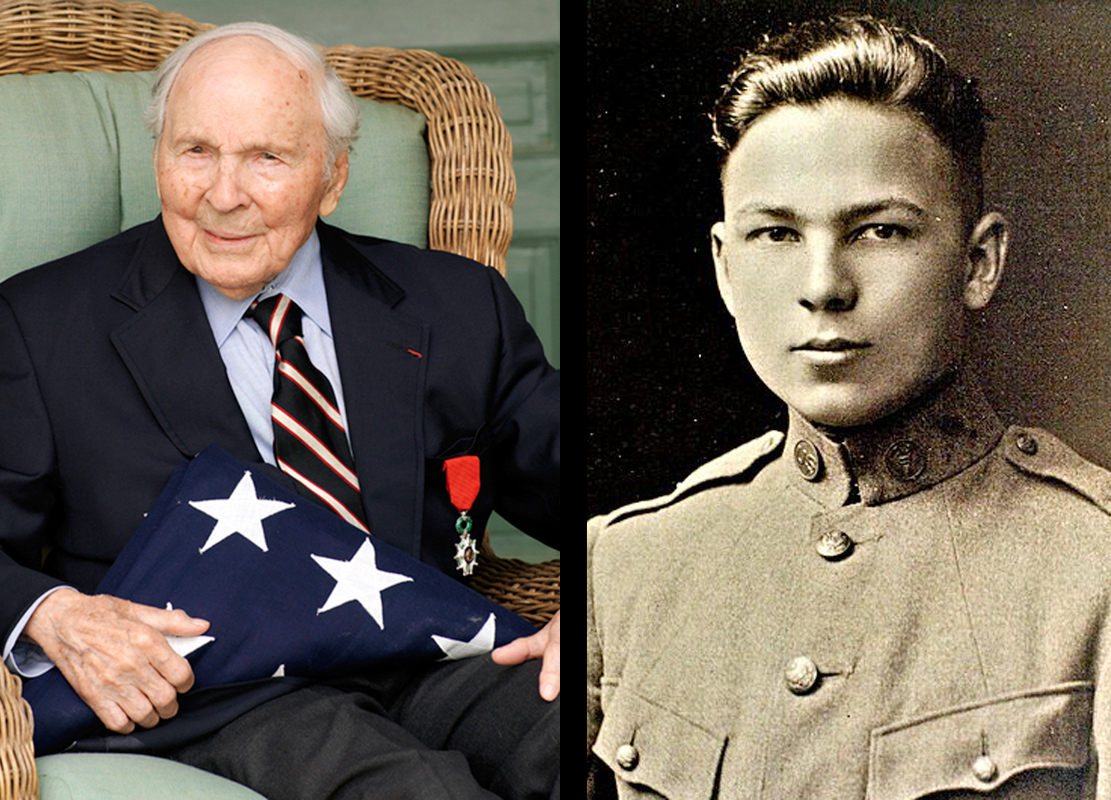
Susannah Jones was born in Lowndes County, Alabama, on July 6, 1899, on a farm tilled by her parents and her grandparents. Both of her grandparents were slaves. She lived an uneventful but meaningful life. She had two luxuries: 4 strips of bacon each morning and high-end lingerie. “You can never get too old to wear fancy stuff,” she once said.[6] Ms. Jones died May 13th, 2016 at the age of 116. She was the last American born in the 19th century.

Her family raised their own meat. Grew their own vegetables and drew water from their own well. Not much different from Americans in other rural parts of the country.
Ms. Jones’ native Alabama witnessed a lot of civil rights history. Massive changes. Being born in 1899, she would have had the opportunity to have known ex-slaves and the mentality of slavery still simmering in the South when Rosa Parks helped demonstrate the power of the economic weapon in Montgomery in 1955. In 1961 Kennedy sent 400 US Marshals to end the violence in Montgomery when a white mob attacked Freedom Riders. President Kennedy nationalized the Alabama National Guard to help protect African American public school children in 1963. Then the 16th Street Baptist Church bombing by members of the Klan killed four African American children: Denise McNair, Addie Mae Collins, Carole Robertson, and Cynthia Wesley. Selma and “Bloody Sunday” in 1965, led to the deaths of many including four faith leaders such as the Unitarian Universalist minister James Reeb.
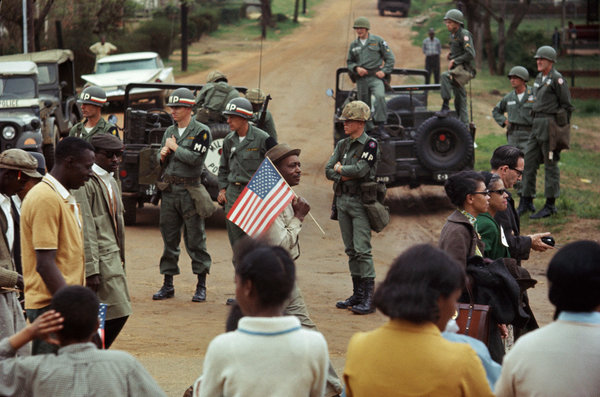
She lived through 20 presidencies. She died at the end of the second term of President Barack Obama. When she was born William McKinley was finishing his first term as president and just as the Spanish-American War came to an end, the seven-year-long Philippine-American War was underway. Around four months after Ms. Jones was born, McKinley’s Vice President died (Garret Hobart, November of 1899). New York Governor Teddy Roosevelt would become McKinley’s new Vice President. McKinley was assassinated in 1901, elevating Teddy Roosevelt to President.
Although established in 1820, the University of Alabama’s doors would open for students in 1831, 68 years before Ms. Jones was born. At first, in order to gain admissions, you had to prove a basic understanding of classical Greek and Latin.[7] She witnessed a lot of history through the lens of that university. Governor George Wallace stood in front of the doors to the university’s admissions office to prevent two African Americans from enrolling.
But back to TR. One of the many things that Teddy Roosevelt will accomplish as President that impacts us today and particularly Ms. Jones who was born in Alabama is that TR saved collegiate football by facilitating the creation of the NCAA. College football was all the rage. College football was dangerous. Broken bones were the norm. Deaths were rare but they happened. In 1904, 21 young men died playing football. That was too much and it looked like college football might be coming to an end. Teddy Roosevelt, who lived what he called the manly life, saw football as a metaphor for war. He sought to preserve football and thought the best way to do so was to create a national organization, self-governing, that would create their own rules. In 1906, he helped launch the Intercollegiate Athletic Association. Four years later, the IAA changed its name to the NCAA.[8]
Alabama, the Crimson Tide, had won 12 national championships before the NCAA created the Bowl Championship Series in 2010. Since the adoption of the BCS, Alabama has won the national championship in 2011, 2012, 2015, and 2017. However, the NCAA lists an additional five championship years between 1945 and 1977. I wonder, in her 116 years, if Ms. Jones ever shouted, “Roll Tide!”?
Maybe not. Ms. Jones wanted to escape the poverty she knew to well that would envelop her if she stayed too long on that farm in south-central Alabama. She attended the Calhoun Boarding High School in Lowndes County and her parents paid the tuition through barter, primarily cut wood and bushels of corn.[9] When she graduated in 1922 Ms. Jones, who became affectionately known as Miss Susie, moved to New York where she spent the next four decades working as “a child caretaker for wealthy families.”[10] She must have kept in contact with some of those children because she had pictures of them as adults “propped up on a coffee table . . . in the living room” in a July of 2014 interview.[11] But not all of her jobs included child care. For example, her second job was that of a housekeeper for the childless couple of “Walter Cokell the treasurer of Paramount Pictures, and he and his wife, Virginia. Winters took the Cokells and [Jones] to Bel-Air and to Florida. She met Cary Grant, Clark Gable, Ronald Reagan (all younger than she). Her already-good cooking got better and more refined.”[12] That job lasted from 1923 until 1945, when Mr. Cokell killed himself. Then Miss Susie went back into childcare until her retirement in 1964.
She lived with a niece, Lavilla Watson, for an unspecified period of time, then moved back to the family farm in Alabama “for a while,” then moved back to New York where she would spend the remainder of her life. When she could no longer care for herself, she moved into the Vandalia Senior Center in East New York, Brooklyn.[13] [14]
Edison’s movies had a greater impact on American culture than Jane Little’s double bass, but her story is possibly more compelling than Edison’s because Jane Little could be any of us. Same for Buckles and Jones. Their accomplishments make them stand out in American history, but with the exception of Buckles’ and Jones’ age accomplishments, we can see ourselves in the actions of Little, Buckles, and Jones. Would you rather spend an hour talking to McKinley about Commodore George Dewey at Manila Bay or to Susana Jones about what she remembers about Teddy Roosevelt, the first US President to win the Nobel Peace Prize? She was 7 or 8 when he left the presidency and 20 or 21 when Roosevelt died.
In 2016, the American people selected the one-time Senator of New York and past Secretary of State Hillary Clinton to be their president. But she did not become president. The authors of the Constitution did not completely trust that “the people” could select the nation’s leader and thus the popular vote does not really count in the end. There are two voting populations: the Popular vote and the Electoral College. You cannot become president if you win the former but lose the latter, but several have lost the former but won the latter. Ultimately whoever wins the election in the Electoral College wins the presidency.
Several times in US history the will of the American people has been ignored. The loser of the popular vote became president:
George W. Bush (R), 2000
Benjamin Harrison (R), 1888
Rutherford B Hays (R), 1876
John Quincy Adams, 1824
In 2016 the vote in the Electoral College went to Donald Trump. Trump lost the popular vote by nearly three million votes. In fact, Clinton got more votes than all the other three winners of the popular election who were denied the presidency. Trump has been contesting these facts since election night spreading conspiracy theories about dead people and illegal aliens voting.
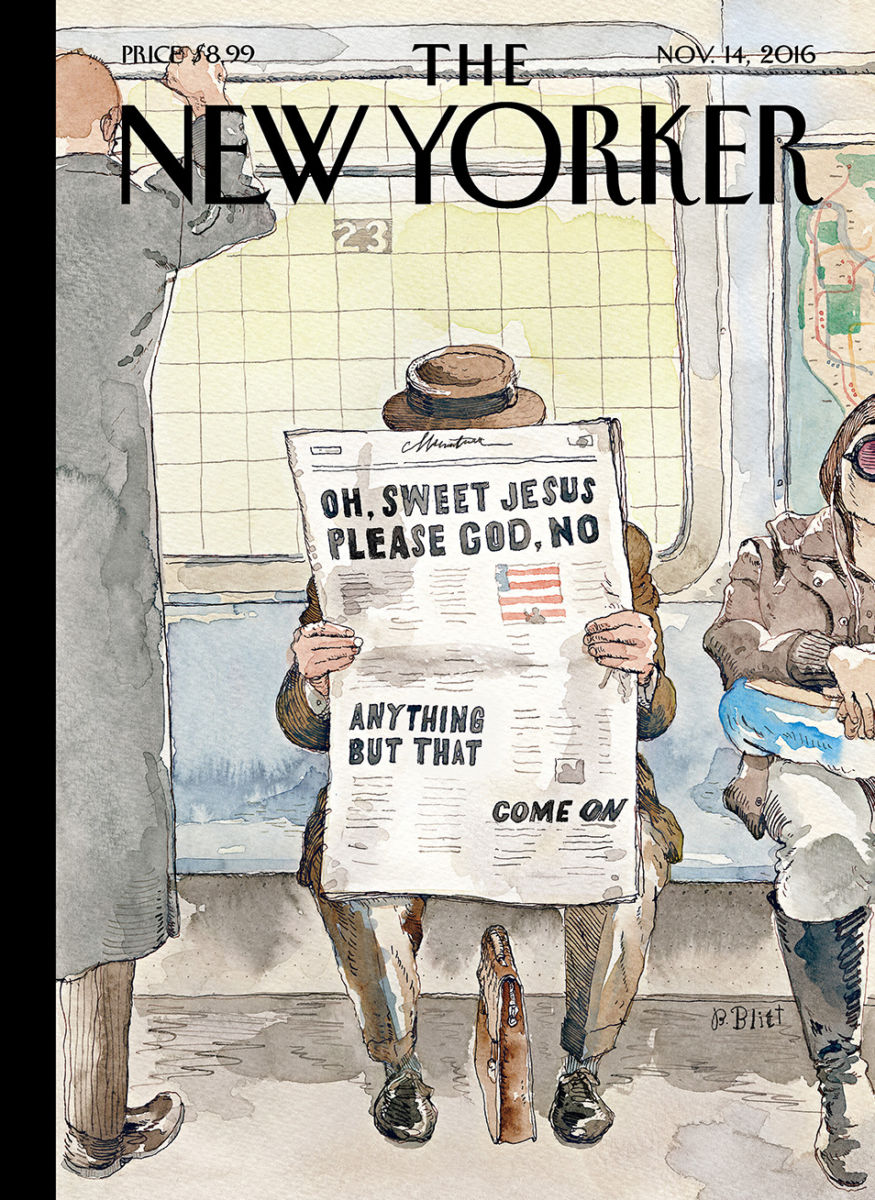
Meanwhile, the validity of the election was almost immediately questioned as rumors and reports on television and in newspapers grew and grew that Russia meddled in the election.
Before the inauguration, various agencies within the US intelligence and law enforcement communities confirmed the reports that Russia was somehow involved in the 2016 presidential election, including the National Security Agency, the Central Intelligence Agency, and the FBI, to name but a few.
Then allegations rose of collusion between Russia and the Trump election team. Various Congressional committees launched investigations into both questions: Did Russia meddle in the election and was there collusion between Russia and the Trump team? Robert Mueller cleared the Trump campaign of this in March of 2019.
After the inauguration, with pressure mounting, people close to Trump stepped down from their positions because it was discovered that those people lied about meeting with Russian representatives, including Trump’s pick for National Security Advisor, General Michael Flynn.
The Justice Department, led by Attorney General Jeff Sessions, called for a special counsel. Special Counsel led to Special Investigator, Congress created that position to investigate President Richard Nixon’s lying about the cover-up of the Watergate break-in, who eventually resigned fearing he was about to be kicked out of office. Republicans used the position to investigate President Clinton’s lying about committing adultery. Congress eventually drew up impeachment charges against Clinton but he remained in office.
Before Sessions selected a special investigator, reporters discovered that Sessions did not tell the truth about his contacts with Russians during the election. He said that he did not lie at his confirmation hearing when he swore under oath that he did not have any meetings with any Russians during the campaign. He just forgot that he met with representatives of Russia, a country bent on dominating the world for a good part of the 20th century insomuch that the US-led the free world to prevent Russia from taking over the world. It was called the Cold War. Korea. Vietnam. The Soviet invasion of Afghanistan and the US creation and support of the mujaheddin, and support of Saddam Hussein during the Iran-Iraq War, are some Cold War events. Regardless if he forgot about meeting representatives from Russia or he lied, he recused himself from the investigation.
So the number two man in the Justice Department was in charge of the investigation. He selected Robert Mueller, a Republican and, more importantly, an ex-head of the FBI to lead the investigation into the Russian influence in the 2016 presidential election. Mueller was the Director of the FBI under Bush and Obama. Federal law prohibited more than a 10-year term but Mueller was so universally respected that when Obama (D) wanted Mueller (R) to continue serving after Bush (R) left office, Obama needed congressional help. He received bipartisan support. A special dispensation allowed Robert Mueller to continue working as the Director of the FBI beyond the 10-year term limit.
Shortly after the 2018 midterm elections, after it became apparent that Democrats would regain control of the House of Representatives (and thus would be able to launch just about any investigation into the election), Trump’s finances, his picks for the Cabinet, even the roles Trump’s children are playing as advisers, to name a few. Trump fired his Attorney General, Jeff Sessions, and replaced him with Matt Whitaker as a temporary appointment to lead the Justice Department, which meant Whitaker oversaw Mueller’s investigation. Whitaker had been an outspoken critic of Mueller’s investigation.
“This isn’t normal.” -Mike Allen, Axios 6/13/2017
“This isn’t normal.” -Senator Ben Sasse (R-NE) 6/29/2017
“This isn’t normal.” -Jonathan Bernstein, Bloomberg Opinion, 1/2/2018
“This isn’t normal.” -Ben Shapiro, RealClearPolitics, 2/14/2018
“This isn’t normal.” -Jorge Ramos, Splinter 8/21/2018
“This isn’t normal.” -Jay Bookman, Atlanta Journal Constitution, 12/1/2018
“This isn’t normal.” -Michael Fuchs, The Guardian Opinion, 12/30/2018
Are they right? Is what is unfolding, is what is being said, is what is happening a change in US history? Official positions, policies, and Tweets with a hint of racism, antisemitism, anti-Catholicism, anti-immigrant, as some have suggested. Or, is what has been going on a continuity, just wrapped up in social media, semi-state media cheerleaders, and messages of the boogie man coming to get you? What’s the difference between the Indian schools that sprang up before and after the Battle of Wounded Knee and the demands of some politicians and their supporters today that immigrants assimilate?
As of December 20th, 2018, there were 10 investigations involving Donald Trump. There was an 11th investigation into his family’s investment house, “Trump,” but that organization was shut down when the NY Attorney General determined campaign finance improprieties. Ten ongoing investigations against a sitting president is not normal.
Shortly after Donald Trump fired FBI director James Comey, the FBI opened an investigation into the possibility that Trump was an agent of Russia and that Trump posed a “threat to national security.”[15] Elements of the Justice Department running counterintelligence operations against a sitting president fearing he was working for any country, let alone the one country dedicated to taking over the world for a good part of the 20th century, is not normal.
Before an open session of the House Oversight Committee on February 26th, 2019, Donald Trump’s former personal attorney, Michael Cohen said of Donald Trump: “He is a racist. He is a conman. And he is a cheat.”[16] That is not normal.
The story did not end there. On January 6th, 2021, after losing the 2020 Presidential election, supporters of Donald Trump attacked the Capitol; an insurrection unseen in American history. Christopher Miller, Trump’s Acting Secretary of Defense, blamed Trump’s January 6th speech for inciting the insurrection.[17] Rep. Adam Kinzinger (R-IL) tweeted, “This is a coup attempt.”[18] That story is still unfolding.
“What’s happening now in America isn’t normal — and we shouldn’t accept it as such.” –Washington Post, Max Boot, 10/29/2018

If you note any errors, if you have any advice for me, can offer me any assistance, if you have any questions, or if you would like to become a contributor to this OER project, feel free to contact me at james.rossnazzal@hccs.edu.
- "The Book on Frank Buckles: America's Last Doughboy," 2 Feb 2011, by Andrea Stone. https://archive.li/ivVTt Last viewed 31 Dec 2018 ↵
- Ibid. ↵
- Ibid. ↵
- Ibid. ↵
- https://www.cbsnews.com/news/katie-courics-notebook-frank-buckles/ Last viewed 1 Jan 2019. ↵
- https://www.npr.org/sections/thetwo-way/2016/05/13/477966609/susannah-mushatt-jones-the-worlds-oldest-person-has-died-in-new-york Last accessed 2 Jan 2019 ↵
- https://en.wikipedia.org/wiki/History_of_the_University_of_Alabama Last accessed 2 Jan 2019 ↵
- https://www.politico.com/magazine/story/2014/09/teddy-roosevelt-saved-football-111146 ↵
- http://nymag.com/intelligencer/2015/12/this-brooklyn-woman-is-the-worlds-oldest-person.html ↵
- https://cityroom.blogs.nytimes.com/2011/07/20/a-milestone-in-brooklyn-112-birthdays/ ↵
- http://time.com/2873247/second-oldest-american-115-birthday/ Last accessed 2 Jan 2019 ↵
- http://nymag.com/intelligencer/2015/12/this-brooklyn-woman-is-the-worlds-oldest-person.html Last accessed 2 Jan 2019 ↵
- http://gerontology.wikia.com/wiki/Susannah_Mushatt_Jones ↵
- http://nymag.com/intelligencer/2015/12/this-brooklyn-woman-is-the-worlds-oldest-person.html ↵
- https://www.nytimes.com/2019/01/11/us/politics/fbi-trump-russia-inquiry.html ↵
- https://www.cnn.com/videos/politics/2019/02/27/michael-cohen-testimony-opening-statement-trump-racist-con-man-cheat-sot-vpx.cnn ↵
- https://www.cnn.com/2021/03/11/politics/miller-on-trump-january-6/index.html ↵
- https://www.chicagotribune.com/politics/ct-illinois-congressional-delegation-capitol-breach-20210106-sgtkvytb25gmvbips4lboxdzpm-story.html ↵
